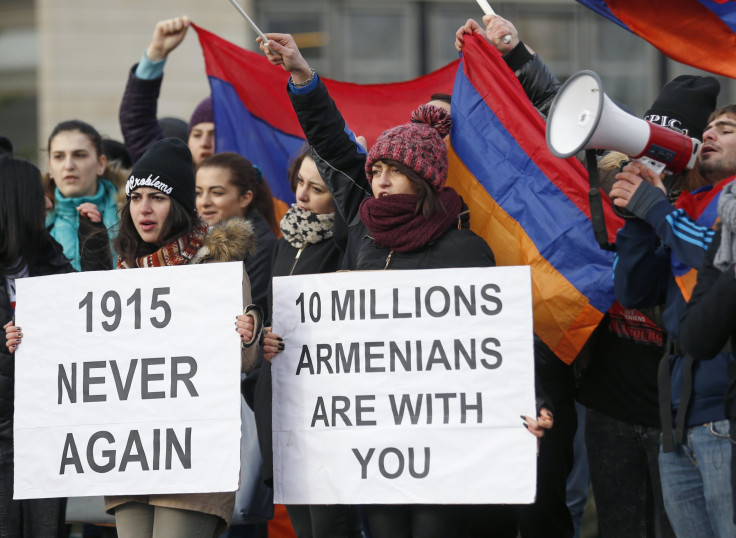Armenian Genocide Denial Law In Cyprus Expected To Increase Tensions With Turkey

The Cypriot Parliament passed a resolution Thursday outlawing the denial of genocide, crimes against humanity and war crimes. The move to make it a crime to deny that Ottoman Turks committed genocide against the Armenians a century ago is expected to increase tensions with longtime enemy Turkey amid stalled peace talks between the two nations.
"Today is a historic day," Speaker of Parliament Yiannakis Omirou said, according to Reuters. "It allows Parliament to restore, with unanimous decisions and resolutions, historical truths."
The Greek-dominated part of Cyprus was one of the first countries to recognize the Armenian killings as genocide. It is commemorated on April 24, the anniversary of the murder of Armenian leaders in 1915. Turkey recognizes that many Armenians died during World War I but denies that the deaths resulted from genocide. Armenians and their supporters accuse Ottoman leaders of systematically massacring 1.5 million Armenians and deporting many more.
Debate over what happened has long been a source of tension between Turkey and other nations, including Cyprus, which has a significant Armenian population. Since invading in 1974, the Turks have occupied northern Cyprus, where they set up a "Turkish republic" recognized by no other country.
United Nations officials are slated to visit Cyprus next week for peace talks between Greek and Turkish Cypriot leaders on the long-stalemated conflict. Espen Barth Eide, the U.N. secretary-general's special adviser on Cyprus, will "follow up on the encouraging indications received during his last trip to the island regarding a possible resumption of the negotiations," U.N. spokesman Farhan Haq told reporters in New York this week. "Maybe we can take some optimism and say that we will not only be back on track but actually we may be able to accelerate the talks and have a faster process than we originally lacked."
© Copyright IBTimes 2024. All rights reserved.












